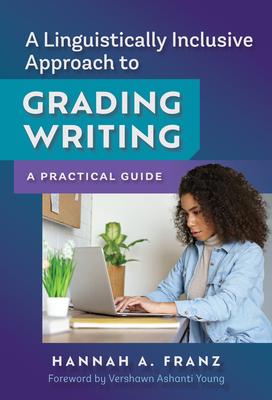Improve your grading and feedback practices to benefit your students and their writing development. This guide models a research-based, linguistically inclusive approach to grading writing so that you can incorporate equitable assessment and feedback into your everyday practice. A linguistically inclusive grading approach honors Black linguistic justice, facilitates students' use of feedback, and guides students to make rhetorical linguistic choices. Additionally, students will develop skills for responding to organization, word choice, grammar, and mechanics rooted in African American English and other language varieties. Example comments and practices are included throughout the book to assist instructors, including those constrained by mandated grade weighting or rubrics that preclude adopting more extensive changes. A Linguistically Inclusive Approach to Grading Writing will benefit writing instructors across contexts, including teaching online, teaching high-achieving students, and using contract grading.
Book Features:
- ● A linguistically inclusive approach to grading and offering feedback on language variation in college-level writing.
- ● Explanations, with examples, for how to use a linguistically inclusive grading approach across contexts and instructor goals.
- ● Concrete tools and adaptable models for responding to student writing for both formative and summative assessment, even when your students are using ChatGPT.
- ● An approach that not only prevents grading bias, but also effectively guides students to make their own rhetorical choices.
- ● Summary lists of recommended practices and questions for instructors to self-assess their instruction.
- ● A companion suite of resources, Students' Right to Their Own Writing, is available at srtow.org.
